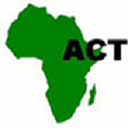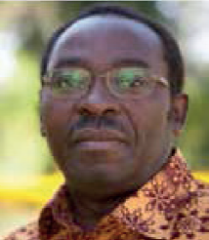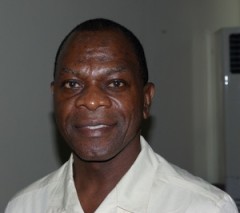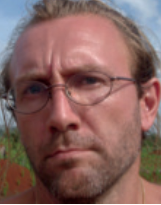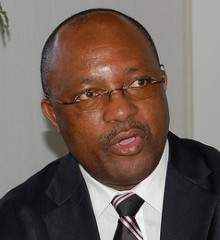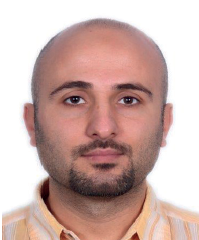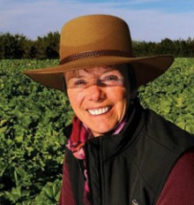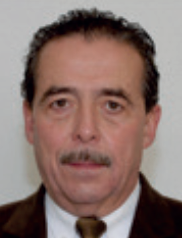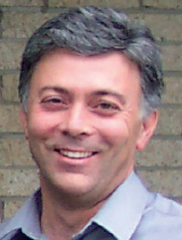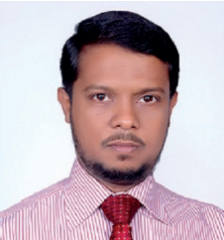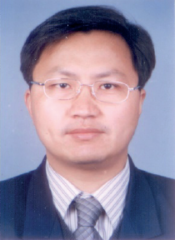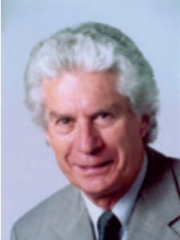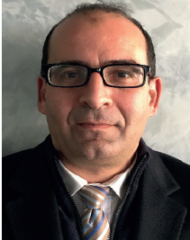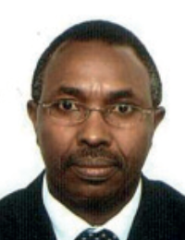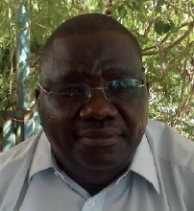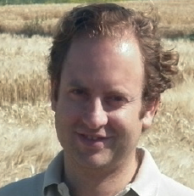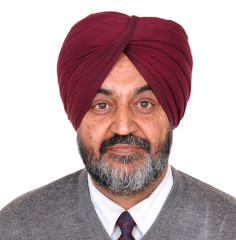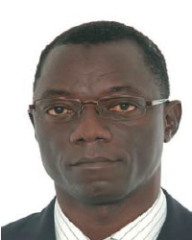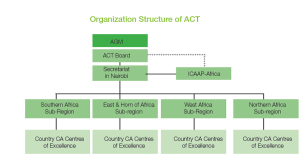Welcome
International Conservation Agriculture Advisory Panel for Africa (ICAAP-Africa)
Welcome ICAAP Panellists!
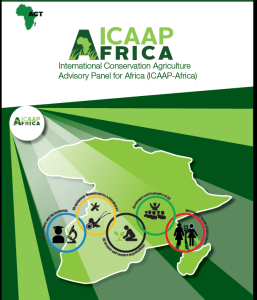 Distinguished Members of the International Conservation Agriculture Advisory Panel for Africa (ICAAP-Africa), on behalf of the African Conservation Tillage Network (ACT), it is our honour to say to you all a warm ‘Welcome to the Panel’.
Distinguished Members of the International Conservation Agriculture Advisory Panel for Africa (ICAAP-Africa), on behalf of the African Conservation Tillage Network (ACT), it is our honour to say to you all a warm ‘Welcome to the Panel’.
It gives us great pleasure to welcome you to this major step of ACT’s evolution as we formally launch the first international, multi-disciplinary and diverse ICAAP-Africa. The acceptance to invitations extended to panellists makes us at ACT feel greatly honoured by your willingness to support the Network and the broad agenda of accelerating the transformation of Africa’s agriculture for sustainable development.
As you are all aware, Africa faces many developmental challenges, including those arising from pervasive poverty, food insecurity and rampant land degradation. The causes of these challenges are varied and interlinked, and the effects of climate change will worsen the situation. Agriculture is the mainstay of the national economies of many African countries, providing livelihoods for up to 80% of the population, and it forms a significant productive base for the development of the other sectors. However, agriculture in African countries needs to be fundamentally transformed, away from the conventional tillage-based Green Revolution-type agriculture, to agro-ecologically-based no-till Conservation Agriculture (CA) in order to achieve sustainable production intensification for community-based rural development. Tillage-based farming is now considered to offer sub-optimal performance in terms of yield, factor productivity, resilience and ecosystem services, and is understood to be economically and environmentally unsustainable. For example, tillage-based farming reduces soil organic matter, destroys soil structure and debilitates soil biodiversity, all of which are important elements in ecosystem functions that create healthy productive soils and deliver ecosystem services.
Agricultural output and productivity (efficiency) must be increased to meet future needs. Farming households should find it profitable to farm by reducing the amount or cost of inputs (including machinery, fuel/power, fertilisers, pesticides, water and labour). They need to be assured of a crop harvest amidst the vagaries of climate change, a diverse diet and a decent living from working their land. They cannot continue to apply practices that are sub-optimal from output and productivity viewpoint and, have long-term negative consequences to the soil, water and other aspects of the environment.
Conservation Agriculture, as a concept and practice for natural resource-saving production intensification, strives to achieve acceptable profits with high and sustained production levels while concurrently conserving the environment. It is a promising way of attaining sustainable agricultural production. In practice, CA offer farmers an array of practices through three interlinked principles[1] that can be applied in a variety of combinations to achieve sustainable production intensification, including by resource poor farmers. The CA approach reduces land and water pollution and soil erosion; reduces long-term dependency on external inputs; enhances environmental management; improves water quality and water use efficiency; and reduces emissions of greenhouse gases through lessened use of fossil fuel, agrochemicals, improved drainage and tillage-induced oxidation of soil organic matter.
Research, extension and development professionals have been working with smallholder farmers in testing and promoting CA technologies in the region for some 20 years, and in specific situations efforts have been ongoing since the 1980s. There is therefore a great deal of evidence that has accumulated regarding the relevance and feasibility of CA for sustainable production intensification across Africa. We now need to expand the evidence base as well as demonstrate and provide the available evidence to farmers and investors to farming alike, including governments, that CA is applicable to their diversified agro-ecological and socioeconomic situations; otherwise farmers will be pushed to continue to commercialise their production using the conventional intensive tillage-based production approach involving ploughing and harrowing, as well as increased amounts of agrochemicals, and to expose and degrade the soil and pollute the environment to the detriment of their farms and livelihoods.
ACT has, as its core business, the promotion of CA in Africa - because it deciphers its importance not only as a set of good agronomic practice - but as providing an ecological foundation to building and sustaining soil health and simultaneously improving utilisation efficiency of all other inputs; and subsequently increasing incomes and productivity, building resilience and adapting to climate change, and developing opportunities for reducing greenhouse gas emissions. ACT, as a continental leader in CA, recognizes the need to facilitate, conduct or commission studies and research that will address the adaptation challenges to spread and mainstream CA. While adoption is on the increase in Africa, its rate of spread is not where it should be, thus hugely underutilising the massive growth potential that exists for CA. Africa and its peoples would benefit tremendously if CA was adopted widely by its millions of smallholder farmers. It is a paradox that while Africa is the only continent with increasing hunger, it is home to less than 1% of the 155 million hectares of CA cropland worldwide. Agricultural transformation is an imperative to systemically build knowledge and human capacity and mainstream CA into development policies and programmes and into institutional strategies.
ICAAP-Africa has an excellent opportunity to advise ACT to access, interpret and understand policy, scientific, economic and technical issues that may have a bearing on the Network’s priorities, strategies and activities, and to make judgements about their relevance, potential and application.
ACT thanks the Norwegian Agency for Development Cooperation (NORAD) for providing the financial resources to support ICAAP-Africa and interventions towards realisation of the network’s strategy.
Once again, we wish you all a warm welcome to ICAAP-Africa, poised to lead to fruitful and gratifying contributions to the emancipation of the African farmer through widespread adoption of CA during the coming 2 years, and beyond, in our undertaking to advise ACT.
| Prof. Amir Kassam
ICAAP-Africa Chairperson |
Eng. Saidi Mkomwa
ACT Executive Secretary |
[1]Minimum soil disturbance (no-tillage and direct seeding); (2) Maintenance of organic soil cover (with crop residues, mulch or live cover crop); and (3) Crop rotation/association (involving at least 3 different crops).
Purpose and Roles of the International CA Advisory Panel for Africa
Purpose
The establishment of the International Conservation Agriculture Advisory Panel (ICAAP - Africa) has been called for under the auspices of the Lusaka Declaration of the 1st Africa Congress on Conservation Agriculture held in Lusaka in March 2014. The purpose of the Panel is to help the ACT to access, interpret and understand policy, scientific, economic and technical issues that may have a bearing on the Network’s priorities, strategies and activities, and to make judgements about their relevance, potential and application.
Role and Functions
The Panel is strictly an advisory body, and has no executive powers. The role of the ICAAP-Africa is to advise ACT on a range of thematic issues related to Conservation Agriculture (CA), including (but not limited to): (i) Adoption and scaling of CA; (ii) Sustainable land management and climate change resilience and mitigation; (iii) Education and training (including relevance and quality of the CA-related curriculum), research, extension and development; (iv) Capacity development and partnerships; (v) Communication, information and knowledge management; (vi) Enterprise and business development; and (vii) Network management support functions, in particular to:
- act as a sounding board on scientific, economic and technical issues relevant to the Network’s work;
- expose the Network to the full range of views on issues relating to its work;
- advise on the quality, limitations and appropriate uses of research carried out by, or on behalf of, the Network;
- recommend appropriate regional policies and strategies to meet existing gaps and stimulate the advancement of CA and the Network
- advise on specific points from reports or client demands on the Network capacity where evidence is limited or further work is required;
- advise on specific issues and problems referred to the Network;
- help the Network, where requested, to develop and maintain links with the research, education and development community and private sector and industry experts;
- encourage better support for the sustainable advancement of CA in Africa; and
- provide research papers or presentations where requested by the Network.
Status of the Panel
The ICAAP-Africa is formed under Section 3 gg of the ACT constitution - to identify suitable persons and constitute panels of authors, editors, reviewers, literary critics, readers and other related groups for their provision of respective advice and services to the company - for the purpose described above.
Panel Composition
ICAAP-Africa will comprise some 15 to 20 eminent individuals knowledgeable in the science, policy, education and training, service provisioning and practice of CA. The Panel members, in their personal capacity and not representing their institutions or employers, include professional individuals from different continents.
Currently, the Panel will be chaired by Prof Amir Kassam (University of Reading, UK, and Moderator of the Global Conservation Agriculture Community of Practice, FAO). The ACT Executive Secretary will serve as the Technical Secretary to the Panel. Given the range of issues that will have a bearing on the Network’s priorities, strategies and work programme, the Panel may convene smaller, specialist working groups to examine specific issues, drawing on external expertise as appropriate. This will be implemented by agreement with the Executive Secretary of the Network.
Term of Appointment
The appointment term of the ICAAP-Africa Panellist, which is renewable, is for an initial period of two years.
Reporting
As an independent advisory panel to the ACT Network, ICAAP-Africa will work with support from the ACT Secretariat, and report to the Board through the ACT Executive Secretary.
Appointment of Panellists
The method of appointment of the ICAAP-Africa Panellists will be as follows:
- The ACT Board will assess the nominations received from the Secretariat against the following criteria:
- A strong commitment and willingness to represent interests of African communities.
- Commitment, buy-in and support towards ACT’s vision of operating as an effective Network in promoting CA-based sustainable agriculture and ecosystem management in Africa.
- Knowledge and experience of and interest in CA.
- Professional discipline and expertise.
- Demonstrated experience as an active member in advisory roles.
- Availability to operate hands-on, and attend meetings, virtual and face-to-face.
- Seek to provide balanced representation from all continents.
- Having considered the Secretariat’s nominations and the selection criteria, the ACT Board will confirm the appointments of the Panellists.
Short-term interventions
- Conservation Agriculture continental framework
- Quality Assurance system and CA curricula for accredited agricultural training institutions
- South-South-North Conservation Agriculture cooperation strategy
- Thematic position papers
Second Africa Congress on Conservation Agriculture (IIACCA).
ICAAP-Africa Panellists
ICAAP-Africa Panellists
ICAAP-Africa Panel is a group of global conservation agriculture experts acting as a think-tank to advise ACT network on policy, scientific, economic and technical issues that may have a bearing on the Network’s priorities and strategies. The panel is working towards the realisation of the Lusaka Declaration of the 1st Africa Congress on Conservation Agriculture held in Lusaka in March 2014. Currently, the Panel is chaired by Prof Amir Kassam (University of Reading, UK, and Moderator of the Global Conservation Agriculture Community of Practice, FAO).
The Panel members include the following experts serving in their personal capacities:
Prof Amir Kassam OBE, FRSB, CBiol, PhD
Chairperson
Prof. Amir Kassam OBE, FRSB, CBiol, PhD Amir Kassam is a Visiting Professor in the School of Agriculture, Policy and Development, University of Reading, UK, and Moderator of the FAO-hosted Global Platform for Conservation Agriculture Community of Practice (CA-CoP). In 2005, he was awarded an OBE in the Queen’s Honours List for services to tropical agriculture and to rural development. He is a Fellow of the Royal Society of Biology (UK), and member of several international advisory committees and Boards. He has published widely.
Born in Zanzibar, Tanzania, Kassam received his BSc (Hons) in Agriculture and PhD in Agro-ecology from the University of Reading, and MSc in Irrigation from the University of California-Davis. Kassam’s research, education and development work is focused on sustainable agricultural intensification and natural resource management. Kassam has worked with a number of national research and development institutions, and with several CGIAR centers, UN agencies and NGOs.
He has served as: Research Fellow at the Institute for Agricultural Research, Ahmadu Bello University, Zaria, Northern Nigeria; International Scientist at ICRISAT, India; Deputy Director General at WARDA (the Africa Rice Centre), Cote d’Ivoire; Interim Executive Secretary of the CGIAR Science Council, FAO, Rome; Chairman of: the Aga Khan Foundation (UK); Chairman of the FOCUS Humanitarian Assistance Europe Foundation, and Chairman of the Tropical Agriculture Association, UK.
Eng. Saidi Mkomwa
Panel Technical Secretary
Eng. Saidi Mkomwa is the Executive Secretary and Chief Executive Officer of the African Conservation Tillage Network (ACT). Prior to joining ACT in 2008, he worked with the Ministry of Agriculture in Tanzania as an Agricultural Engineering Researcher. Saidi is an ex officio member of the Board of Directors of ACT and is a member of several professional bodies including: the Engineers Registration Board (Tanzania); the Tanzania Society of Agricultural Engineers; and the International Steering Committee on Conservation Agriculture. He is a member of The International Centre of Insect Physiology and Ecology (ICIPE) Push-Pull Technical Advisory Committee, current Chairperson of the Conservation Agriculture Regional Working Group for Southern Africa (CARWG) and sits in The Common Market for Eastern and Southern Africa (COMESA) Joint Technical Committee on Agriculture, Environment and Natural Resources.
Saidi holds an MSc in agricultural engineering from the University of Guelph Canada and a BSc in Engineering from the University of Dar es salaam, Tanzania. In his career, and mainly in the context of the South-South and Triangular Cooperation of the ACT Network, Saidi has worked with a number of National Governments, NGOs, Research Institutions and Development Partners in Africa, and with Academia and International Research Institutions from America and Europe. He has published several papers in refereed journals, book chapters and in conference proceedings.
Ms. Juliana Albertengo
Panellist
Ms Juliana Albertengo was born in San Jorge, a small city in the centre of Santa Fe province, Argentina. She has studied Rural Business Administration at the National Technology University and is also an Agronomic Engineer from Rosario National University. She is about to finish an MSc in Agronomy from Iowa State University.
Juliana has worked for seven years in Argentinean No-till Farmers Association (AAPRESID). She was in charge of the Good Agricultural Practices Program, the International Relationships and the Annual Congress. She has participated as a speaker in many national and international conferences. She has written various articles in different national and international newspapers and book chapters.
She has been an FAO and ICCI (International Cryosphere Climate Initiative) consultant todate. Juliana’s family owns a farm and she is in charge of the farm’s operations. She serves as a farmer´s consultant for technical issues and for certification schemes. In addition, she is fluent in Spanish, English, French and Italian.
Dr. Mloza Banda
Panellist
Dr. Mloza Banda has over 17 years of practical experience in research, innovation and development with a major focus on agricultural, environmental and water management issues. In addition to formal training in agricultural ecology, he trained in environment and development through the LEAD Program and acquired long-term experience in agricultural, social, economic and environmental impact assessments and surveys. He has a track record of securing regional and international project grants and implementing action research and mentoring postgraduate research with a bias in land and water resources conservation. He has been privileged to lead academic units as Chair of Department, Faculty Dean, and Director of Institute as well as serving in the public sector including as Chair of the Water Resources Board of Malawi. He is competent in generating national and international public goods through synthesis and publication of innovation and research results. He has demonstrable skills in development of information and communication materials and presentations at national, regional and international forums.
Prof Gottlieb Basch
Panellist
Prof Gottlieb Basch holds a Doctorate degree in Agricultural Sciences from Georg-August-University Göttingen/Germany. His PhD studies in Portugal introduced him to the area of alternative land use and soil management systems. He is a member of the Institute of Mediterranean Agricultural and Environmental Sciences (ICAAM), University of Évora/Portugal since its foundation in 1991 working on soil conservation and soil carbon dynamics. From October 2013 until May 2015 he was the coordinator of the research group of ICAAM—Soil, Water and Climate and since 2008, the Vice Director of ICAAM. He is director of the PhD course in Agricultural Sciences of the University of Évora since 2009. His main interests are in sustainable land use and in the implementation of Conservation Agriculture systems. The study of the impact of the adoption of Conservation Agriculture principles has been the core of his research work and publication activity. He is has authored and co-authored more than 40 publications, international journals and several book chapters. He is also currently involved in two international projects under the programs H2020 and ERAfrica. Gottlieb Basch has been—between 2002 and 2008, and is—since 2011, the President of the European Conservation Agriculture Federation (ECAF).
Stephane Boulakia
Panellist
Eng. Stephane Boulakia—from France, is an Agronomy engineer with Cirad, specialising in tropical Conservation Agriculture. He worked for ten years in several R&D projects on cropping systems design in Madagascar, Gabon and Vietnam, before heading to Cambodia from 2004 to 2013, as agronomist and technical assistant of the Support Project to the Cambodian Agriculture (Ministry of Agriculture, Forestry and Fisheries, granted by AFD and USAID). He led R&D Programs focus on cropping systems development through participatory and multi-scale approaches for rain-fed upland and lowland field crops (maize, cassava, rice and soybean). He came back to Cirad headquarter in Montpellier and took the coordination of the Cropping System Design and Ecological Intensification team of the Research Unit on Agroecology and Sustainable Intensification of Annual Crops (AIDA). He is currently providing his expertise and support to several smallholders and industrial projects in West and Central Africa. He is due to start his next position on ecological intensification of field crops (maize, rice, cotton, and mainly soybean), in Colombia with both public and private partners in the near future.
Martin Bwalya
Panellist
Mr. Martin Bwalya is the Head of Comprehensive Africa Agriculture Development Programme (CAADP) under The NEPAD Planning and Coordinating Agency. He has over twenty (20) years of active and practical experience working on Africa’s development field having worked in international organisations with broader focus on multi-national development initiatives, brokering investment financing partnerships for regional and country level programmes and impact reporting.
In additional to working intensively with and within the African Union institutions—the African Union Commission, the NEPAD Agency and the Regional Economic Communities, he has wide and practical experience in the development, negotiating and management of partnerships with multilateral and bilateral institutions including the UN Agencies (FAO, WFP, UNCTAD, UNEP and UNDP) and others (e.g. World Bank, IFAD, AfDB, well as bilateral Government and institutions such as the G8 and G20. He has worked on development and management of collaboration and programming along the South-South partnerships with state and non-state players in South America (Brazil, Colombia & Argentina) and China.
He holds a MSc. Agricultural Mechanisation management, with focus on reduced tillage machinery and tools from Cranfield University, Silsoe College, England. He also has a B.Sc. Agricultural Sciences, Mechanisation, Soils and Water Management major from the University of Zambia.
Dr. Harun Cicek
Panellist
Dr. Harun Cicek completed his undergraduate degree on environmental science at University of Ottawa. He worked at the Agriculture and Agri-Food Canada on Beneficial Agricultural Practices project as research assistant and conducted research on reducing the agricultural effluent to streams using control structures, and tested the efficacy of these control structures using remote sensing. He completed his M.Sc. and Ph.D. at the University of Manitoba. His research was on cover crops, crop-livestock integration, reduced tillage and sustainable intensification of organic cropping systems in the northern latitudes. In 2013, he moved to Jordan to work for ICARDA, his focus was on conservation agriculture and crop-livestock integrated systems under dry areas. He is currently at the Konya Food and Agriculture University (http://www.gidatarim.edu.tr/en) as an Assistant Professor, Cropping Systems Agronomy.
- Website: Link
Jill Clapperton (PhD)
Panellist
Jill Clapperton (PhD) is the Principal Scientist and Co-founder of Rhizoterra Inc. (www.rhizoterra.com). Rhizosphere Ecologist at the Agriculture and Agri-Food Canada Lethbridge Research Centre in Lethbridge, Alberta, Canada for 15 years, Dr Clapperton lead the Rhizosphere Ecology Research Group studying how soils function biologically and how farmers could more effectively and profitably manage and exploit long-term biological soil fertility of the soil, and consumers can have mineral nutrient-rich food. She is a well-known researcher and international lecturer presenting information and research findings relating soil biology to soil and crop management practices, environmental health, and mineral nutrition value of food grains.
She has given keynote addresses at among other events to the World Conference on Conservation Agriculture in Brazil, the 2008 Sustainable Agriculture Conference in Washington and the national No Till Conferences in the USA and Ukraine. At the 2014 National No Till Conference, Jill received the Syngenta No Till Innovator for Research and Education Award. She is also the recipient of the Environment Canada Patricia Roberts-Pichette Award for enthusiastic leadership and education in environmental monitoring and assessment.
Rhizoterra believes that soil must be managed as a habitat, and that healthy soil grows healthy plants, promotes water quality, and grows a bounty of nutritious food.
Dr. Rafael Fuentes
Panellist
Dr. Rafael Fuentes is a socioeconomy researcher, since 1979, at Instituto Agronomico do Parana. He has experience in Agroecological Zoning, Farmers Typology, Farming Systems Survey, Farm Planning and Sustainability Indicators. He has concentrated in No Tillage System and Conservation Agriculture with special attention to Indicators of Sustainability in No Tillage System and Economy of Crop Rotation. He is also a specialist in Development Oriented Research and participated at the ICRA Course (1987) in Wageningen, The Netherlands and Colima, Mexico. He has a wealth of international experience as FAO – UN consultant to introduce Conservation Agriculture in Nicaragua, Cuba e Haiti. He was the second Secretary Director of Brazilian No-till Farmers Federation (FEBRAPDP) during 2010-2012 and 2014-2016 periods. Rafael graduated in Agronomy at ESALQ – USP in 1978 and holds a masters degree in Agricultural Economics also at ESALQ – USP (1984). He also has a PhD in Agronomy at Universidade Estadual de Londrina – UEL (2007).
Tom Goddard
Panellist
Tom Goddard is a senior policy advisor with Alberta Agriculture and Forestry, Alberta, Canada. An early career path in agriculture extension developed a range of skills and an understanding of farm systems. Additional paths into consulting increased exposure into forestry and land reclamation systems for the private sector. Government experience as a soil specialist and manager helped acquire a wide background in soil science research and development including conservation technologies, precision farming, fertility, landscape relationships, soil quality and reclamation. With academic training in both animal science and soil science combined with many years of experience in agriculture from both practical and professional perspectives, Tom now explores those vacant spaces between policy, research, extension and pragmatism. Tom has been involved with greenhouse gas and climate change work since the 1990s participating in policy and science development initiatives at the provincial, federal and international levels. Recent work has included sustainable metrics, footprints and environmental impacts. He has done consultations for a variety of agencies in a number of countries, participated in think-tanks and provided strategic advice.
Dr. Enamul Haque
Panellist
Dr. Enamul Hague has been serving as Adjunct Associate Professor since 2011, Murdoch University, Australia, and the Coordinator of Conservation Agriculture Project in Bangladesh. Between 1994 to 2011, he has served as a Cropping System Agronomist in CIMMYT Conservation Agriculture (CA) program. He led to establish the platform with agricultural scientists, extentionists, farmers and private entrepreneurs to work together for CA-based technology development and refinements, technology validation and adoption; mass promotion and commercialization. He contributed significantly to the development of new technologies i.e., CA-based Resource Conservation Technologies (RCT); system based crop management; seed production and preservation of rice, wheat, maize, lentil, mungbean, and triticale; farm machineries – minimum tillage planter (PTOS), zero tillage planter, bed planter, potato planter, versatile multi-crop planter (VMP), versatile strip seed drill, rice-wheat reaper, mobile fodder and straw chopper, pulses de-husking mill, etc. Developed networking and established more than 5,000 service providing farmers groups (small agricultural contractors) for dissemination of CA-based RCT; seed production, preservation and marketing that covered about 500,000 farmers. Contributed to develop the technology transfer tools i.e., wheat whole family training program, maize whole family training program, triticale whole family training program, CA-based RCT training program, service providers model for farm machinery mass promotion.
Prof. Li Hongwen
Panellist
Prof. Li Hangmen Ph.D, is a Professor, Changjiang Scholar, China Agricultural University; Taishan Scholar, Shandong University of Technology; Head, Conservation Tillage Research Center (CTRC), MOA, P.R.C; Chairman of Agri Mechanization Committee of China Society of Agri Engineering. Study conservation tillage since 1992; more than 200 papers and 80 patents on conservation tillage; Outstanding scientific and technological workers by China Association for Science and Technology 2012, pacemaker of agriculture technology extension by Ministry of Agriculture 2007, National Excellent Agricultural Scientist Excellent 2005. The Second Prize of National Award for Technical Advancement, Conservation Tillage (Popular Science), 2013; the Second Prize of National Award for Technical Advancement, Conservation Tillage for the areas with double crops a year, 2009;the Second Prize of National Award for Technical Advancement, Conservation Tillage for the areas with double crops a year, 2002.
Prof. Alain de Janvry
Pannellist
Prof. Alain de Janvry Alain de Janvry is a Professor of Agricultural and Resource Economics and Public Policy at the University of California at Berkeley. His area of interest is international economic development, with expertise principally in Latin America, Sub-Saharan Africa, the Middle-East, and the Indian subcontinent. His fields of work include poverty analysis, rural development, land reform, quantitative analysis of development policies, impact evaluation of social programs, technological innovations in agriculture, and the management of common property resources. He has worked with international development agencies such as FAO, IFAD, the World Bank, UNDP, ILO, the CGIAR, and the Inter-American Development Bank as well as with foundations such as Ford, Rockefeller, Kellogg, and Gates.
Dr. Irene Kadzere
Panellist
Dr. Irene Kadzere a Zimbabwean national, holds a PhD degreefrom Cornell University, USA, (2006) in Pomology, a MSc. degree in Land and Water Management (Irrigation Water Management) from Cranfield University, Silsoe College, UK (1996), and a BSc. Degree in Agriculture, Crop Science from the University of Zimbabwe (1992). Since 2012, Dr. Kadzere is a Scientist at the Research Institute of Organic Agriculture, FiBL, Switzerland, where she is managing a collaborative project on the comparative analysis of the productivity and profitability of organic and conventional farming systems in Ghana and Kenya. She also strives to contribute to the integration of conservation agriculture (CA) and organic agriculture. Before joining FiBL, Dr. Kadzere worked for the Food and Agriculture Organization of the United Nations (FAO) as a Regional Agronomist for the Emergency Programme in Southern Africa where FAO has been promoting CA among other interventions. While in FAO Dr. Kadzere jointly coordinated the CA Regional Working Group for Southern Africa (CARWG). Previously Dr. Kadzere worked as the Horticulturist and Country Representative for the World Agroforestry Programme (ICRAF) in Zimbabwe (2006-2007). She has more than 10 years’ experience of working as a research officer in the Zimbabwe Ministry of Agriculture’s Department of Research and Specialist Services
Dr Rachid Mrabet
Panellist
Dr Rachid Mrabet received his PhD in Agronomy from Colorado State University (Fort Collins, USA) in 1997 and his MSc in Soil Physics from University of Minnesota (Saint Paul, USA) and Hassan II Agronomic & Veterinary Sciences Institute in Rabat (Morocco) in 1989. Dr Mrabet is Research Director and Head of Scientific Division (National Institute of Agricultural Research [INRA]). During his 26-year career at INRA, the main topics investigated related to conservation agriculture, no-tillage cropping systems, soil physics & hydrology, soil quality and carbon sequestration in dry areas. He published 9 books, 38 book chapters, 44 papers in peer-referred journals and more than 100 communications and presented his research results at various congresses and meetings in Morocco and worldwide. He has coordinator and/or has been member of 44 projects financed by different national and international donors and institutions.
The leadership of Dr Mrabet in conservation agriculture and no-tillage systems is recognized nationally and worldwide. He has been invited as a keynote speaker to various international congresses and national conferences. Dr Mrabet is a Council Member of World Association of Soil and Water Conservation (WASWAC) (2008-2016). He is Associate Editor: International Soil and Water Conservation Research (ISWCR) and is serving in Editorial Advisory Board of Soil & Tillage Research Journal. He has been consultant/expert for various international institutions. He received three international awards, two from the International Soil Tillage Research Organization (ISTRO) and 1 from International Erosion Control Association (IECA). In addition, in 2009 he received the National Award on Agricultural Research.
Dr Mrabet has taught several courses at national universities, international research and development organizations and NGOs. He has advised 19 M.Sc. and five PhD students in Moroccan and European universities and served in committees of more than 20 graduate students in country and overseas. Dr Rachid Mrabet has organized and served in scientific committees of several national and international conferences, the latest being the first international conference on Afro-Mediterranean soils (Marrakech December 18-19, 2015). He has also advised, worked and published in other research subjects such as salinity, irrigation, waste management, desertification, bioenergy, and wheat yield forecasting.
Dr. Joseph G Mureithi
Panellist
Dr. Joseph Gichane Mureithi (Vice Chair International Steering Committee) is the Deputy Director General of Kenya Agricultural and Livestock Research Organization (KALRO), previously known as KARI. Prior to this, he served as the Deputy Director in-charge of the Research and Technology Department. He is a member of several professional bodies including Soil Science society of East Africa (SSSEA) and Africa Crop Science Society and is a life member, World Association of Soil and Water Conservation. Dr. Mureithi has held professional positions in local and international bodies and he has received several professional awards. He is a member of the Board of Directors of the African Conservation Tillage Network, a member of the Advisory Board of the Organic Farmer Magazine in East Africa and a member of the Technical Committee of the Kenya National Farmers Federation. He holds a Doctorate degree in Forage Agronomy from Reading University, UK; a Master of Science degree in Grassland Science from the same university and a Bachelor of Science in Agriculture from the University of Nairobi. Dr. Mureithi has published over 40 papers in refereed journals, several book chapters and has over 50 papers published in conference proceedings. He was a co-editor of Legume Research Network Project Newsletter and he has been involved in the supervision of several post graduate degree students.
Mr. Collins Nkatiko
Panellist
Collins Nkatiko – a Zambian National currently engaged as Executive Director and CEO of the Conservation Farming Unit (CFU). He is currently involved in Applied R&D and most importantly knowledge transfer through intensive hands on training on Conservation Farming to over 200,000 Farmers per year in Zambia and another 300,000 through in-country partners in a regional programme covering Uganda, Kenya, Tanzania and Malawi. For the Past 16 years he has coordinated training of Government Ministries and NGOs (Local and International) involved in CA promotion in Mozambique, Madagascar, Lesotho, Botswana and South Africa. Through Private sector led initiatives the CFU currently supports a mechanisation programme for smallholder farmers involving 500 tractor based No Till and spraying service provisions by smallholder farmers. Collins has also served in several portfolios such Agronomist (FINNIDA) and in The Ministry of Agriculture in several capacities ending as Deputy Director of Planning responsible for Programme implementation.
He holds a Bachelor of Agricultural Sciences (UNZA) and a Master of Science in Applied Entomology and Plant Protection (Newcastle Upon Tyne).
He is a practicing CA farmer cultivating over 100 hectares of annual crops among others.
Prof Emilio González-Sanchez
Panellist
Prof Emilio González-Sanchez from Cordoba, Spain, is an Agronomical Engineer from the University of Cordoba. For the last 15 years he has been working for the Spanish Conservation Agriculture Association / Living Soils (AEAC/SV). He was the General Secretary of the European Conservation Agriculture Federation (ECAF), Brussels, between 2005-2008; and from 2008, the Adjunct Professor at the Rural Engineering Department of the University of Cordoba.
Emilio has participated in numerous European projects (LIFE08 ENV/E/000129, LIFE04 ENV/ES/000269, LIFE99 ENV/E/000308, LIFE96 ENV/E/000338) aimed at the promotion of conservation agriculture and its impact on climate change, soil conservation and water protection. He has been consultant for the European Commission for the Soil Conservation (SoCo) project, and for the FAO in Armenia. Currently, Emilio is the manager of the LIFE+ ClimAgri (LIFE13 ENV/ES/000541) project, which focuses on conservation agriculture and climate change mitigation and adaptation.
Emilio was member of the committee who developed the Soil Thematic Strategy of the European Commission (2002-2006). He is member of the Technical Committee of the Rural Development Program in Andalusia (2007-…), where conservation agriculture is addressed for arable and perennial crops. He has been advisor to the Spanish Office for Climate Change with a special emphasis on Kyoto Protocol’s National Inventory of Greenhouse gases.
Some scientific publications by Emilio González can be found at: http://www.scopus.com/authid/detail.url?authorId=52263518500
Dr. Haminder Singh Sidhu
Panellist
Dr. Harminder Singh Sidhu is a Senior Research Engineer at the Borlaug Institute for South Asia (BISA), based at Ludhiana, India. Before joining BISA/CIMMYT, he worked as Senior Research Engineer at the Department of Farm Machinery & Power Engineering, Punjab Agricultural University (PAU) at Ludhiana, India for more than 17 years. He has over 22 years’ experience in research, extension and teaching in the area of farm machinery. His research work was mainly focused on the machinery related to conservation Agriculture/resource conservation like strip till drill, no till drill, no till drill with double disc openers, Happy Seeder, Straw Management System (SMS) for combine harvester, laser land leveller and relay seeders etc. Dr Sidhu has made significant contributions in capacity development on conservation agriculture for a range of stakeholders in South Asia and beyond and organized/participated in more than 25 international workshops/trainings on CA machinery around the world in last 10 years. His research contributions have been well documented in over 50 publications. He was awarded John Dillon young scientist fellowship by Australian Centre for International Agricultural Research (ACIAR) in 2006 and recently he has received “Jyoti Award” from Indian Society of Agricultural Engineering (ISAE) in 2011. He enjoys very good rapport with his superiors and his counterparts of associated departments of Punjab Agricultural University, Machinery Manufacturer association and international organizations like CIMMYT, ACIAR, and IRRI.
Dr. Robert Zougmoré
Panellist
Dr. Robert Zougmoré is an agronomist and soil scientist with a PhD in Production Ecology and Resources Conservation, University of Wageningen. He is based at ICRISAT Bamako where he currently leads the CGIAR research program on Climate Change, Agriculture and Food Security (CCAFS) in West Africa. His work focuses on the development of climate-smart agriculture technologies, practices, institutions and policies for better climate risk management in West Africa. Before joining CCAFS, he was a senior staff within the Sahara and Sahel Observatory (Tunisia) where he was focused on: Desertification, land Degradation and Drought (DLDD) including environmental surveillance, monitoring and evaluation of DLDD, drought early warning, etc.; and climate change adaptation in Africa (analysing adaptation strategies of vulnerable populations in arid and semi-arid zones, etc.). He has published more than 50 papers and book chapters on soil erosion, integrated soil, water and nutrient management options and their economic benefits, and climate change.
Wolfgang Gérald STURNY
Panellist
Dr. Wolfgang Gérald Sturny is head of the Soil Conservation Service of the canton of Berne/Switzerland since 2001, after eleven years as scientific collaborator and vice-chairman, where he particularly focused on physical soil protection by means of conservation agriculture techniques. From 2000 to 2001, Sturny was president of the Swiss Society of Agronomy. He has been a member of the board of the Swiss Soil Conservation Association (SWISS NO-TILL) since 1995, and from 2005 to 2008 he was board member and vice-president of the European Conservation Agriculture Federation (ECAF). Sturny worked as a scientific collaborator for the Swiss Federal Research Station for Farm Management and Agricultural Engineering (1983-1990) and for the Department of Plant Science in the Faculty of Agriculture of the Swiss Federal Institute of Technology (ETH) in Zurich (1979-1980) – following his agronomy studies. In 1982 he finished his Master of Science in Winnipeg/Canada on sugar beet production under minimum and zero tillage and in 1987 his Ph.D. at ETH in Zurich referring to the long-term retention of soil fertility.
With over thirty years of work experience and research, Sturny provides practical advice to farm managers and counts with 135 edited publications for research, agricultural advisory and practical purposes as well as for the professional press. He has teaching assignments at universities and colleges and also elaborates numerous papers given on conferences and meetings in Switzerland and abroad.
An Overview of the State of Conservation Agriculture in Africa
What is CA in Africa?
Conservation Agriculture is not a single technology but a systems approach to farming based on a set of linked complementary practices that should be implemented in combination with other good technologies and practices by the farmers in order to obtain full benefits. These practices cover a large range of expertise from equipment and machinery to soil management, residue management and cover crops to pest and diseases management to nutrient and water management including crop and cropping system management. In addition, each country and sub-region in Africa has its own unique resource endowment, socioeconomic conditions, range of production and farming systems, and agricultural and economic development opportunities. Further, each country and sub-region has its particular level of adoption and spread of CA, depending on its national level commitment towards CA.
This state of affairs calls for flexibility and adaptability according to the specific biophysical and socio-economic situation in each country and sub-region. Given this understanding, therefore, the CA principles need to be translated into a number of locally-devised and adapted practices that can work simultaneously through contextualized crop-soil-water-nutrient-pest-ecosystem management at a variety of scales to address the major challenges in Africa and Globally. These include: (a) pervasive food insecurity and poverty, (b) high environmental impact of tillage-based agriculture, (c) relatively high-cost tillage-seed-fertilizer-pesticide-credit approaches, (d) absence of agro-ecologically-based production systems that are environmentally stable, and (e) natural and man-made disasters and crises.
CA has been shown to be relevant and appropriate for small and large scale farmers at all levels of farm power and mechanization, from manually-operated hand tools to equipment drawn by animals to operations performed by heavy machinery. However, its spread in Africa has been slow compared to other continents, and the reasons for this lower than desired spread of CA can be attributed to wide-spread constraints that include: (i) continued promotion and development support of tillage-based agricultural systems by national and international, public and private institutions; (ii) weak policies and regulatory frameworks and institutional arrangements to support the promotion and mainstreaming of CA; (iii) inadequate awareness, knowledge and expertise of CA systems and the process of their adoption and spread among policymakers, academic, research, extension and technical staff; (iv) inappropriate CA technology packaging and dissemination; (v) inadequate CA-based enterprise diversification and integration in farming systems; (vi) inability of smallholders to diversify crop rotations, sequences and combinations; (vii) inadequate skills and competencies among farmers and other CA practitioners; (viii) farmers’ inability to maintain year-round soil cover through the use of specially introduced cover crops, intercrops and crop residue; (ix) poor availability and access to the required CA equipment, machinery and inputs; and (x) absence of a strong continental body and strategic policy framework to guide the promotion and mainstreaming of CA across Africa.Where is CA practised in Africa?
According to Kassam et al. (2014)[1] CA is practiced on nearly 155 million ha globally, and since 2008/09, it has been increasing at a rate of some 10 million ha per year. Africa has about 1.2 million hectares, an increase of some 650,000 ha since 2008/09. Although latest figures are not available for all the countries where CA adoption is occurring, South Africa has the highest area (368,000 ha), followed by Zimbabwe (332,000 ha), Zambia (200,000 ha), Mozambique (152,000 ha) and Malawi (65,000 ha) (Figure 1). Other notable countries include Kenya, Ghana, Tanzania, Tunisia, Madagascar, Morocco, Lesotho, Namibia, Sudan and Burkina Faso.
Some large-scale farmers have been able to adopt profitable mechanized CA in several countries such as South Africa, Zambia, Zimbabwe, Kenya, Tanzania, Morocco and Tunisia. However, in much of Africa, agriculture is dominated by smallholder farmers. They have different sets of drivers and challenges compared to large-scale farmers and they need support to adopt and practice CA. They use manual labour, animal traction or tractor power. Several participatory approaches to CA adoption and scaling have been tested successfully. These include Farmer Field Schools, Lead Farmer Networks, and No-Till CA Associations. Where mechanization is introduced, service provider model or group ownership approach or a combination can be suitable depending on local constraints and the nature of the overall development support, including training, and access to technical expertise, affordable supply chains, and markets.
Global and regional level environment for CA
Globally CA is gaining acceptance in all continents and many countries of the world as an alternative to other forms of agriculture as a means to enable small and larger farmers to intensify production sustainably. Due to increased environmental concerns, there is renewed interest in the formulation of alternative strategies for enhancing development activities, including agriculture, that take cognizance of the needs of smallholder farmers and of long-term investment in environmental sustainability that is also affordable by and accessible to smallholders. In recent times, CA has demonstrated its potential in addressing climate change challenges, and CA has been shown to contribute to climate adaptation and mitigation, biodiversity conservation, and delivery of ecosystem and societal services such a clean water, carbon sequestration, and control of soil erosion and degradation. Consequently, CA is referred to as being climate-smart, and is included as being part of climate smart agriculture (CSA).
At the international level, CA relates directly to the United Nations Framework Convention on Climate Change, the International Convention on Biodiversity, the United Nations Convention to Combat Desertification and the various agreements on international waters. Under the Kyoto Accord, various initiatives in national and international marketing of carbon offsets based on CA systems are currently operating that involve financial mechanisms that ensure environmental benefits provided by CA are recognized by society at large, and financial benefits accrue to CA practitioners. These and other future initiatives provide opportunities for environmental service payments on “niche products” and have the potential to encourage farmers to shift to CA and other supporting sustainable agriculture practices.
New Partnership for Africa's Development (NEPAD). Realizing that Africa region can only take its proper place in the international community if it gains economic strength, African Heads of State and Government of African Union (AU) set an ambitious target of 7% annual growth rate in GDP over the next 20 years to eradicate poverty, achieve food security and build the foundations of sustainable economic development on the continent. The AU/NEPAD intends to mobilize domestic and external resources and to establish new forms of partnership with domestic and international organizations thus creating development opportunities for regional and sub-regional institutions.
At continental level, NEPAD hopes to eradicate poverty in Africa and to place its countries on a path of sustainable growth for the next 15 years. It is a commitment of African countries, both individually and collectively, to the former Millennium Development Goals (MDGs) and the new Sustainable Development Goals (SDGs). NEPAD believes that improvement of the performance of the agricultural sector is a prerequisite in meeting its set targets for economic development. It further recognizes that improving the productivity of agriculture rests on dealing effectively with a number of critical constraints such as climatic variability, poor rural infrastructure, unsupportive policies, and weak institutional and regulatory frameworks. Regional and sub-regional institutions are expected to play a lead role in spearheading science and technology in the development of sustainable food and agriculture systems.
Comprehensive African Agriculture Development Programme (CAADP). CAADP was established by AU/NEPAD in July 2003 as the highest policy level framework for the coordinated development of agriculture in Africa. The overall goal of CAADP is to “Help African countries reach a higher path of economic growth through agriculture-led development which eliminates hunger, reduces poverty and food insecurity, and enables expansion of exports.” The CAADP is a growth-oriented agriculture development agenda aimed at increasing agriculture growth rates to 6% per year to create the wealth needed for rural communities and households in Africa to prosper. At the continental level CA has been incorporated into the regional agricultural policies of AU/NEPAD as part of the responses to food insecurity and rising food prices, and at the same time embracing climate change adaptation and mitigation measure by adoption of sustainable land management practices.
The Heads of State and Government of the African Union meeting in June 2014, in Malabo Equatorial Guinea adopted the Malabo Declaration on CAADP and commitment to accelerate Agricultural Growth and Transformation for Shared Prosperity and Improved Livelihoods (Doc. Assembly/AU/2/XXIII). The declaration included commitment to ending hunger by 2025; commitment to halving poverty by 2025 through inclusive agricultural growth and transformation; and commitment to enhancing resilience in livelihoods and production systems to climate variability and other shocks. A decision from the same meeting on the report of the chairperson of the NEPAD Heads of State and Government Orientation Committee (HSGOC; Assembly/AU/9/XXIII) endorsed the NEPAD Programme on Agriculture Climate Change, with its components on gender empowerment, support to smallholder farmers and the establishment of an African Climate Smart Agriculture Coordination Platform through which Planning and Coordinating Agency (NPCA) will collaborate with partners including Regional Economic Communities (RECs) and Non-Governmental Organisations targeting 25 million households by 2025; branded as the 25x25 declaration.
Key stakeholders in the evolution of CA in Africa
The introduction and promotion of CA for smallholder agricultural and livelihood development in Africa has been championed by the Food and Agriculture Organization (FAO) of the United Nations since the mid-1990s in partnership with NGOs, National Governments and research and development partners. Some of the earlier countries where the FAO Technical Cooperation Projects (TCP) were implemented in partnership with National Governments are: Burkina Faso, Kenya, Tanzania, Uganda, Ghana, Sudan, Zambia, Swaziland, South Africa, Mozambique, Lesotho, Eritrea and Egypt. The Soil Fertility Initiative launched by FAO and the World Bank in 1996 supported CA in several African countries.
Promotion and spread of CA in Africa has relied for funding mainly from donor support through specific time bound projects. One of the exceptionally longer-term programmes, since 1996, has been the Royal Norwegian Government initiated CA support programme in Zambia with the Conservation Farming Unit (CFU). The programme, which is ongoing and backed by government, has attained remarkable achievements. Other interventions include the Norwegian support to the SADC countries through FAO for a period of four years from 2008. Norwegian Agency for Development Cooperation (NORAD), Department for International Development of UK (DFID) and other donor-supported Common Market for Eastern and Southern Africa (COMESA) climate change project continued to back those efforts, extending from Southern African Development Community (SADC) to East African Community (EAC) and other COMESA member countries. Other projects include: IFAD funded support to the smallholder CA project in West Africa (Burkina Faso, Guinea and Niger) implemented by ICRAF/ACT/CIRAD; IFAD funded support to CA in four SADC countries implemented by CIMMYT; and ACT’s capacity building to research workers and extension officers from SADC countries with support from SADC, European Union (EU), German Development Cooperation (GIZ), FAO, Regional Land Management Unit, (RELMA) and Landcare South Africa.
ACT and partners organised the FAO-sponsored Third World Congress on Conservation Agriculture in Nairobi Kenya in 2005 (proceedings at http://www.fao.org/ag/ca/doc/IIIWCCA.pdf). The event created the much needed awareness about CA for policy makers, research and development practitioners, farmers and the private sector. Other prominent international NGOs and development organizations that are promoting CA in Africa include: CONCERN Worldwide, Canadian Food Grains Bank, CARE International, Total Landcare, Howard Buffett Foundation and Aga Khan Foundation. The Alliance for a Green Revolution in Africa (AGRA) sponsored by Gates Foundation and Rockefeller Foundation began supporting CA in partnership with ACT from 2012 through their Soil Health Projects in Kenya and Tanzania. In addition, there are several national level NGOs that are promoting CA, namely: Kwa-Zulu Natal No-till Association in South Africa, CFU in Zambia, Foundation for Development in Zimbabwe, and APAD in Tunisia.
The focus of most CA initiatives has been on food security and livelihood development; participatory adaptive research with smallholder farmers for technology development for sustainable production, and advocacy for public and private sector support. Such initiatives are bound to have significant implications for adoption and spread of CA in the region, and need to be supported and encouraged.
The private sector has also contributed significantly to the current status of CA in Africa. The main stakeholders include the large-scale farmers (e.g. in South Africa, Kenya, Tanzania, Zambia and Zimbabwe), CA equipment manufacturers/distributors, and herbicides suppliers. Their successful implementation of CA, especially in marginal and diverse conditions, has provided useful learning platforms for other farmers, policy makers and development organizations. Some large-scale farmers have even introduced outreach programmes to support smallholder neighbouring farmers.
Engagement of RECs across Africa in the promotion and uptake of CA is considered to be essential but currently it is weak. The objective for the RECs is to ensure the existence of a conducive development environment for all stakeholders to play their respective roles. Good policy environment, commitment of national governments, and public and private sector institutional support is key to successful implementation of CA and CSA programmes in Africa. It is therefore necessary for ACT to engage with regional bodies to share the evidence-based CA information to enable the formulation and implementation of the necessary development policies and institutional strategies that can attract investments to support the introduction, adoption and spread of CA as a core component of CSA initiatives.
The importance and role of CA in sustainable agricultural growth and economic development has been clearly documented and can, therefore, be considered as the most appropriate entry point in transforming agricultural production in Africa. However, as noted already, the adoption and spread of CA in Africa has been slow due to the challenges and constraints outlined above. Addressing these challenges and constraints requires interventions at higher levels to ensure development of appropriate policies and regulatory frameworks to support adaptation, adoption, up-scaling and mainstreaming of CA, and attract the private sector to invest and develop CA supportive businesses around agricultural commodity value chains and input supply chains.
In line with this, the ACT Network has seen the need to serve as the pan-African body that should undertake the critical role of intervening at the highest possible level in the Africa development agenda. However, in order to enable the Network to perform this role effectively, the stakeholders have called for the Network to reposition itself strategically as the pan-African body charged with the responsibility of promoting CA principles and practices to enhance agricultural productivity, sustainable land management and environmental conservation for improved livelihoods, wealth creation and economic growth in Africa. The need for this reorientation and repositioning of ACT Network has been recognized by the current ACT strategic plan and given impetus by the stakeholders during some of the recent key consultative fora organized by the Network with the support of several development partners and national governments.
ICAAP-Africa is a key vehicle meant to support ACT to achieve the higher policy- and institutional-level interventions to enable CA concept and practice to be recognised by and mainstreamed into regional bodies and National Governments’ policy interventions for sustainable agriculture intensification and natural resources management.
About ACT
The African Conservation Tillage Network (ACT) is a pan-African not-for-profit organization that has evolved into an open platform for stimulating and facilitating the sharing of information and knowledge on experiences and lessons on the promotion of CA. ACT brings together stakeholders in the public, private and civil sectors dedicated to improving agricultural productivity and resilience through the sustainable utilization of production inputs and of natural resources of land, water and biodiversity in Africa’s farming systems. The thrust of ACT is to add strategic value to local, national and international efforts to introduce and scale CA for sustainable agriculture and rural development. It does this through strategic partnerships with stakeholders in the identification, adaptation, adoption and scaling of CA practices and in developing the institutional support and human capacity to sustain the transformation of agricultural systems to meet future needs.
Founded in 1998, ACT is a rapidly growing organization and has expanded to cover the entire Sub-Saharan Africa. The headquarters for ACT is based in Nairobi (Kenya) while the three sub-regional coordinating offices are located in Ouagadougou (Burkina Faso), Dar-es-Salaam (Tanzania) and Harare (Zimbabwe) to cater for West, Eastern and Southern Africa respectively.
Vision
“To be a premier network of excellence in promoting sustainable agriculture and ecosystem management for improved livelihoods and wealth creation in Africa”. Africa is able to deploy its natural resources to support attainment of basic livelihood needs for its people and provide sustainable foundation for industrialization and socio-economic growth.
Mission
“To enhance agricultural productivity, sustainable land management and environmental conservation through promotion of Conservation Agriculture principles and practices in Africa”. ACT’s mission is to promote agricultural productivity and environmental conservation through the adaptation and adoption of Conservation Agriculture principles and practices in Africa.
Thematic areas of focus
ACT’s work is to promote the adaptation and adoption of CA principles and practices in Africa. This is carried out through the following six necessary strategic outcomes, and their corresponding thematic areas were identified as summarised below:
- Adoption and scaling up of CA strengthened
- Sustainable land management and climate change resilience improved
- Capacity building and partnerships enhanced
- Communication, information and knowledge management improved
- Entrepreneurship and business development strengthened
- Network management support functions strengthened.
Adoption and up-scaling of CA strengthened. The Network identifies and promotes appropriate approaches, methods and tools for adoption and up-scaling of CA by smallholder farmers. These are then applied to influence on knowledge dissemination and adoption of locally formulated CA practices. ACT also facilitates capacity building of partner institutions such as the CA Centres of Excellence (CoE), NGOs and national Governments so that they can effectively participate in up-scaling CA in respective project countries.
Sustainable land management and climate change resilience improved. A number of CA related sustainable land management technologies and practices are promoted for adoption to address the need for climate change adaptability and mitigation. These technologies and practices include no tillage, legume and non-legume cover crops, residue retention, mulching, crop rotations, intercropping, agroforestry and crop-livestock integration. Good agronomic practices including timely planting, use of improved seeds, and judicious use of inorganic fertilisers and herbicides are necessary for better results from CA adoption and uptake.
Capacity building and partnerships enhanced. ACT engages in the promotion of learning about CA and sustainable land management practices. This embraces curriculum development; development and distribution of training materials; actual training and training support for farmers and staff; and mentoring and quality assurance. Every year ACT conducts both international and national CA training courses and a few tailor made courses, attracting participants from government, NGOs and private institutions. At the systemic level, ACT is engaging with CA Centres of Excellence (selected agricultural Universities, Colleges and Research Institutions) to build their capacity and influence curriculum change.
Communication, information and knowledge management improved. ACT is involved in generation, collection and synthesis of sustainable land management (SLM)/CA knowledge and information; storage and dissemination of SLM&CA information through databases, newsletters, information sheets and website; and interactive knowledge sharing through web based and hard copy materials. The main pathways for communicating CA knowledge products and services to different stakeholder categories include: meetings, workshops, trainings, print and electronic material, online tools, demonstrations plots and CA documentaries. ACT facilitates exchange visits and interactions, especially farmer-to-farmer visits, and supports on-farm demonstrations and field days.
Entrepreneurship and business development strengthened. ACT supports CA service providers, particularly in targeted project countries, and does also link farmers to service providers and vice versa (to market, insurance and financial services). The concept of CA “Model Farmers”, the majority of whom is also expected to become “mechanised CA services providers”, is being developed as a promising economically sustainable approach.
Network management support functions strengthened. This thematic area focuses on the following intervention strategies: strengthening the Network financial resources mobilization and management; strengthening the human resource development and management; improvement of the administration and procurement services, procedures and processes; and strengthening Network corporate governance systems, processes and services.
ACT’s organizational and management structure has been established on governance principles of transparency, accountability, legitimacy and consultative decision making processes. The Network conforms to the AU’s acceptable code of ethics and conduct for African Civic Society Organizations.
ACT Governance
The governing body is the ACT Board. On behalf of the Network membership, the Board functions as the main authority on the Network’s overall mandate and policy decisions. The Board is composed of eleven persons nominated by the membership and drawn from various countries in Africa and other partnering Institutions worldwide who participate in their personal capacities. The current Board membership is available at http://www.act-africa.org/content.php?com=2&com2=93&com3=
Organization Structure of ACT
Major Programmes and Undertakings
The ACT Network has been involved in the implementation of many projects and programmes since its inception in 1998. Details of these projects are available at the ACT website www.act-africa.org.
[1] Kassam, A.H., Friedrich, T., Derpsch, R. and Kienzle, J. (2014). Global overview of the spread of Conservation Agriculture. 6th World Congress on Conservation Agriculture, 22-27 June 2014, Winnipeg, Canada (http://www.ctic.org/WCCA/)
The Lusaka 2014 CA Declaration
The African Conservation Tillage Network (ACT), the Government of Zambia and in close liaison with partners convened the 1st Africa Congress on Conservation Agriculture (IACCA) in Lusaka, Zambia, from 18th to 21st March 2014. This was held under the theme “Conservation Agriculture (CA): Building entrepreneurship and resilient farming systems”. The Congress brought together 414 delegates from 42 African and other countries of the world to share experiences and lessons and facilitate alliances to unblock hindrances to expanded and scaled-up adoption of CA, especially among the smallholder farming systems and related industry in Africa. In order to achieve the CAADP goal of 6% growth of the agricultural sector, the participants made a 10 points declaration (http://www.africacacongress.org/) that support the up scaling of CA as a climate smart technology in Africa. Participants to the IACCA resolve that:
POLICY, POLITICAL COMMITMENT AND LEADERSHIP
- We call for commitment from all national and international stakeholders in the public, private and civil sectors to support the up-scaling of CA as a climate smart technology to reach at least 25 million farmers across Africa by 2025;
- Governments are called upon to create a conducive environment for the adoption and development of CA by investing more in CA education and extension; integrating CA training in educational curricula, and supporting CA farmers and their organizations.
- Governments are called upon to create enabling policy environment to allow investment financing, and technological development including private sector involvement in CA related value chains;
- Development partners are urged to increase support to CA programmes under the CAADP Agriculture climate agenda;
PRIVATE SECTOR ENGAGEMENT
- Urge the Private sector to proactively support up scaling of CA through further innovations and increased investments financing in appropriate CA technologies and related services;
TRAINING, EXTENSION, RESEARCH AND INNOVATION, AND KNOWLEDGE SUPPORT
- ACT is to establish a quality-assurance system for accredited agricultural training institutions to provide CA training certificates. Furthermore, ACT will collaborate with relevant stakeholders for the harmonization of CA training curricula;
- Farmers who have adopted CA should be supported to be champions and educators for their counterparts. Furthermore, they should establish locally relevant collaborations, innovation platforms and associations that can engage with government and other CA actors;
- Agricultural training institutions are requested to take up CA as an integral part of their training programmes and take part in farmer sensitization and training efforts;
- Urge all concerned including FARA and the CGIAR to ensure research and extension on CA is farmer-focused and responsive to the needs of farming communities, and research findings should be communicated more effectively to inform decision making at different levels as well as to support knowledge management systems including extension and training;
- ACT, in collaboration with FAO & Regional Economic Communities are called upon to support knowledge management by stakeholders, including the CA task forces.
